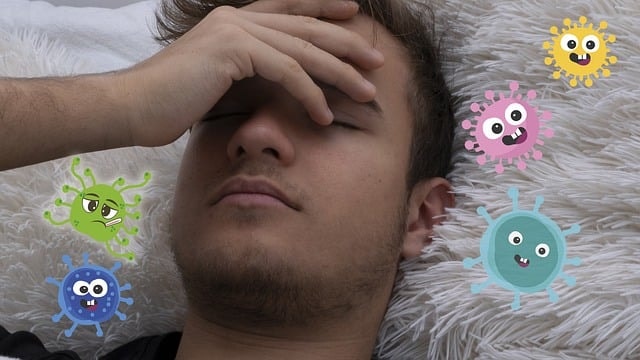Minocycline Ruined My Life: A Candid Account of Struggles and Recovery
My Experience with Prescribed Minocycline
When I was first prescribed minocycline for acne vulgaris, I felt hopeful. Like many others, I wanted clear skin and believed this medication was my answer. Little did I know, my journey with minocycline would drastically alter my life.
Initially, I wasn’t aware of the risks associated with this medication. No warnings prepared me for the impact it would have, particularly on my mental and physical health. I took minocycline diligently, expecting results, but the symptoms began manifesting long before my skin started to improve.
The Devastating Side Effects
The side effects were unexpected and severe. Despite using sunscreen and taking precautions, I suffered from severe sunburns that left my skin raw and painful. Along with these burns, I developed a persistent and itchy rash that took months to subside.
My body felt as though it was betraying me. Joint pain and stiffness made even the simplest tasks unbearable. Yet, the most alarming side effect was the one I couldn’t see—crippling anxiety and depression. These mental health challenges were unlike anything I’d experienced before, leaving me feeling isolated and confused.

The Struggle to Get Diagnosed with Rheumatoid Arthritis and Find Relief
For months, I sought answers. Doctors dismissed my symptoms or prescribed medications that provided no relief. It was a lonely and frustrating journey, and I often felt as though no one understood the severity of what I was experiencing.
Eventually, I found a doctor who recognized the connection between my symptoms and the medicine minocycline. It was a bittersweet moment: I had an answer, but the road to recovery felt daunting, especially considering the complexities of taking minocycline and its potential side effects.
Medical Community’s Response to Minocycline Side Effects
The medical community has not turned a blind eye to the severe side effects associated with minocycline. Recognizing the potential dangers, the FDA has issued warnings about serious risks such as pseudotumor cerebri and autoimmune syndrome. These warnings are now prominently included on the medication’s label, ensuring that patients and healthcare providers are well-informed.
In response to these risks, the medical community has developed stringent guidelines for the safe use of minocycline. Regular monitoring of liver function and blood counts has become a standard practice to catch any adverse effects early. These measures are crucial in preventing long-term damage and ensuring that patients can use the medication safely.
Overcoming the Challenges of Minocycline
The first step toward healing was to stop taking the medication. While the decision was frightening, it was also empowering. With the help of a new doctor, I began a treatment plan that addressed my symptoms.
Therapy became a cornerstone of my recovery. Focusing on my mental health allowed me to process the emotional toll of my experience. Gradually, I began to feel more like myself—physically and emotionally.

Alternative Treatments and Therapies Explored
For those who, like me, have faced severe side effects from minocycline, exploring alternative treatments becomes a necessity. Other antibiotics, such as doxycycline or erythromycin, are often considered as they may offer similar benefits with potentially fewer risks. Non-antibiotic treatments, like retinoids or hormonal therapies, also present viable options for managing acne vulgaris.
In some cases, patients might turn to alternative therapies such as acupuncture or herbal supplements. While the effectiveness of these treatments for acne is not well established, they offer a glimmer of hope for those seeking relief without the harsh side effects. It’s essential to discuss these options with a healthcare provider to find the safest and most effective treatment plan.
Coping Mechanisms and Support
Support came from unexpected places. Online communities and forums connected me with others who had endured similar struggles. Their stories offered validation and hope when I needed it most.
Self-care became a priority. Activities like exercise, meditation, and journaling helped me cope with lingering symptoms and emotional scars. Learning to be patient and compassionate with myself was key in my healing journey.
Impact on Personal Relationships and Social Life
The side effects of minocycline, such as a persistent skin rash or debilitating joint pain, can take a heavy toll on personal relationships and social life. I found myself feeling self-conscious and embarrassed, leading to social withdrawal and isolation. The emotional burden of dealing with these side effects strained my relationships with family and friends, making an already difficult situation even harder.
Open communication with loved ones became essential. Sharing my experiences and struggles helped them understand what I was going through and provided me with much-needed support. Seeking help from healthcare professionals and joining support groups also played a crucial role in navigating these challenges. Knowing that I wasn’t alone in my journey made a significant difference.
Lessons Learned and Warnings to Others
This experience taught me hard but valuable lessons:
Medications like minocycline should be prescribed and taken with caution.
Always research potential side effects and advocate for yourself if something feels wrong.
Mental health is as important as physical health—don’t hesitate to seek help when needed.
Trust your body and instincts; speak up if you feel something isn’t right.
Financial Implications of Long-term Treatment
The financial implications of long-term treatment with minocycline can be overwhelming. The cost of the medication itself can add up, especially for those requiring extended treatment. Additionally, regular monitoring and testing, such as liver function tests and blood counts, are necessary to ensure safe use, further increasing the financial burden.
In some cases, patients may need to explore alternative treatments or therapies, which might not be covered by insurance. This can include options like acupuncture or herbal supplements, adding to the overall cost. It’s crucial to discuss these financial implications with a healthcare provider and explore options for reducing costs, such as opting for generic or discounted medications. Being proactive about managing these expenses can help alleviate some of the stress associated with long-term treatment.

Moving Forward and Finding Closure
Though I’m still recovering, I’m focusing on the future. Forgiveness—both for myself and others—has been instrumental in letting go of the past.
Healing isn’t linear, but I’m determined to come out stronger. This journey has shown me the importance of resilience, and I’m committed to living a life that prioritizes my health and happiness.
Conclusion and Final Thoughts
Minocycline may have caused immense hardship, but it also taught me invaluable lessons. By sharing my story, I hope to raise awareness about its potential risks and encourage others to approach medications with caution.
I’m profoundly grateful for the support I’ve received, from loved ones to online communities. While this chapter of my life was challenging, I’m excited about the future and the opportunities it holds.
If my story can prevent even one person from experiencing the struggles I faced, then sharing it has been worthwhile. Together, we can foster understanding and empower others to take control of their health.










